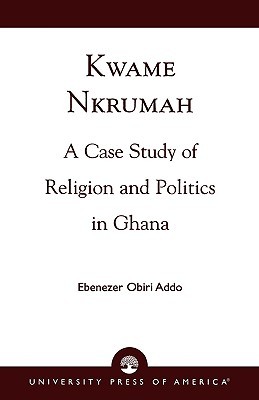
- We will send in 10–14 business days.
- Author: Ebenezer Obiri Addo
- Publisher: University Press of America
- ISBN-10: 0761813187
- ISBN-13: 9780761813187
- Format: 14 x 21.6 x 1.5 cm, softcover
- Language: English
- SAVE -10% with code: EXTRA
Reviews
Description
This book examines how Kwame Nkrumah, Ghana's first post-colonial political leader legitimized his rule. It argues that Nkrumah found in religion a way to weld ethnicnically diverse groups with primordial attachments together. Through his employment he was able to spearhead the building of a nation he named Ghana. Social, anthropological, as well as political theories from Max Weber, Clifford Geertz, Kofi Busia, Ali Mazrui, David Apter, and others are utilized to examine the Nkrumah phenomenon. Specifically, the book contributes to the extensive literature on Nkrumah by supplying an often neglected link: The role of religion in Nkrumah's life, thought and career. By so doing it emphasizes the role of religious ideas and religious action in Ghanaian politics.
EXTRA 10 % discount with code: EXTRA
The promotion ends in 19d.15:41:52
The discount code is valid when purchasing from 10 €. Discounts do not stack.
- Author: Ebenezer Obiri Addo
- Publisher: University Press of America
- ISBN-10: 0761813187
- ISBN-13: 9780761813187
- Format: 14 x 21.6 x 1.5 cm, softcover
- Language: English English
This book examines how Kwame Nkrumah, Ghana's first post-colonial political leader legitimized his rule. It argues that Nkrumah found in religion a way to weld ethnicnically diverse groups with primordial attachments together. Through his employment he was able to spearhead the building of a nation he named Ghana. Social, anthropological, as well as political theories from Max Weber, Clifford Geertz, Kofi Busia, Ali Mazrui, David Apter, and others are utilized to examine the Nkrumah phenomenon. Specifically, the book contributes to the extensive literature on Nkrumah by supplying an often neglected link: The role of religion in Nkrumah's life, thought and career. By so doing it emphasizes the role of religious ideas and religious action in Ghanaian politics.


Reviews